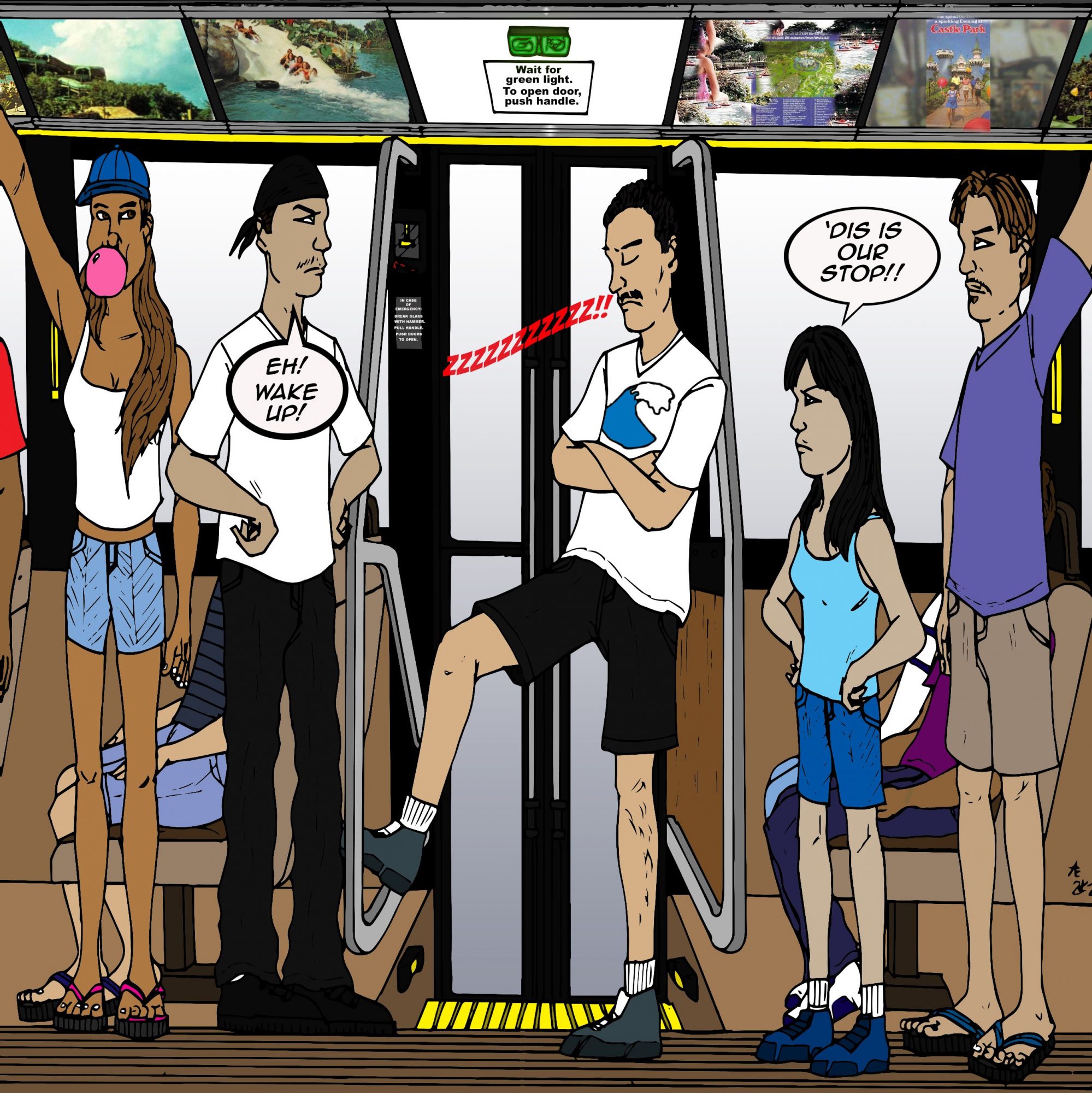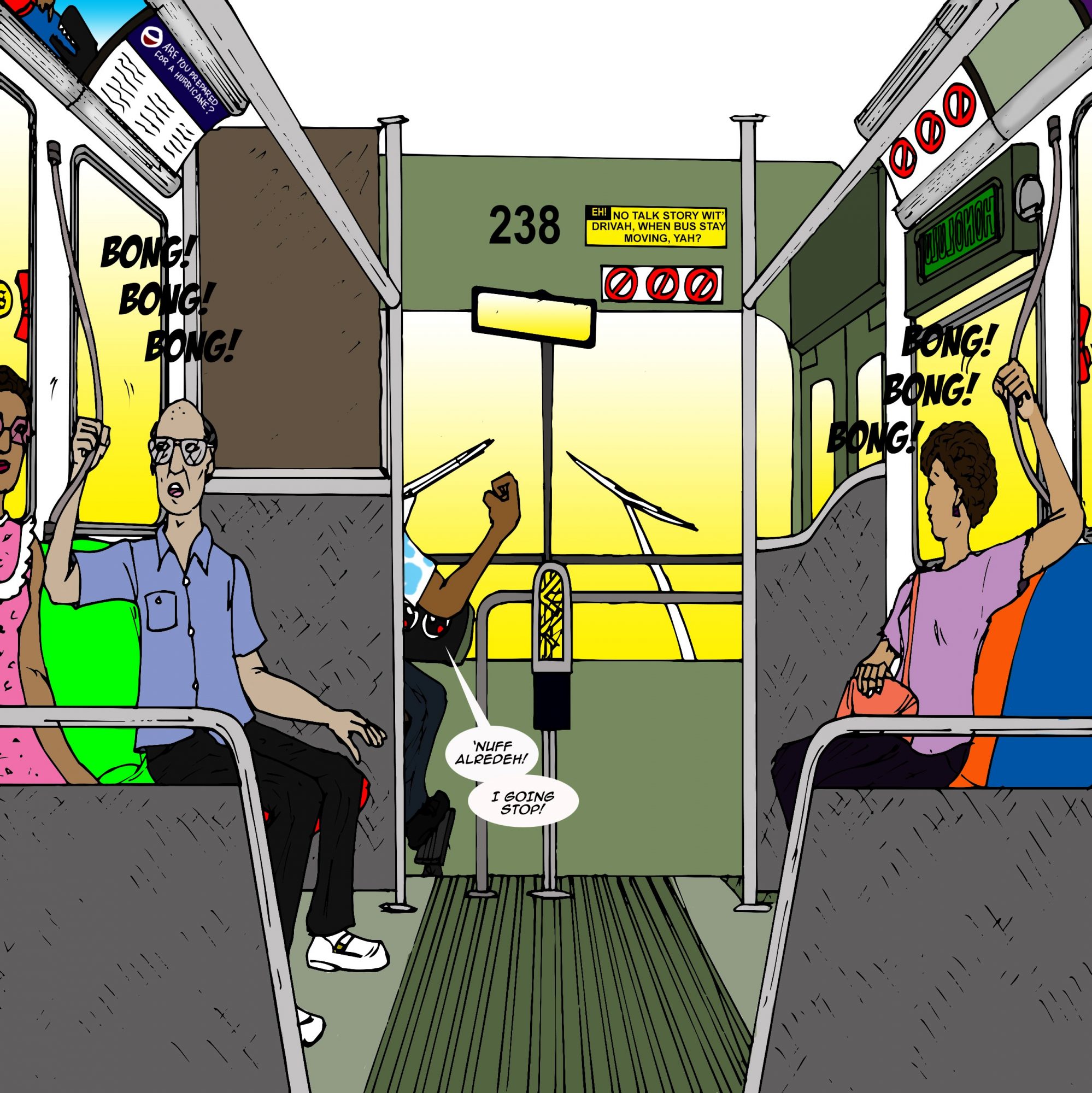

Today we’d like to introduce you to Allen Carter.
Alright, so thank you so much for sharing your story and insight with our readers. To kick things off, can you tell us a bit about how you got started?
Ever since I was a child, I enjoyed both illustration and storytelling, from watching movies to Saturday morning cartoons. I would write and illustrate my own comics at age eight for fun, using typing paper and mechanical pencils. My love of creating my own comics carried on into both High School and college until I formed Carter Comics in 2010 and exhibited at my first Comic Convention with professionally printed self-published comics. In the twelve years since that moment, I have grown and learned a lot about what it takes to attract and maintain customers at a convention, which hopefully leads to a sale. I have been a vendor at various shows big and small throughout California, where I currently reside. I have also done a few shows out-of-state as well, in cities such as Las Vegas, Washington DC, Denver, and by birthplace of Honolulu. In addition, I have done several interviews on podcasts (audio and video), in-studio radio shows, comic shop signings, and had my books reviewed. As these conventions are the primary source of both comic sales and networking for me however, everything about these events, from your table and banner displays to the types of shows, the time of year and area the show takes place, and of course your merchandise, can affect whether a convention is a success or a bust to an independent comic creator.
Can you talk to us a bit about the challenges and lessons you’ve learned along the way. Looking back would you say it’s been easy or smooth in retrospect?
Of course, nothing turns out or progresses perfectly. Some of the biggest challenges in building fan support for my brand Carter Comics as well as the books I create, were big or small conventions where I just couldn’t get a customer interested to look at one of my books, much less purchase one. Being in a low-traffic area was an even bigger challenge, as it’s difficult to keep your energy up when hardly anyone is passing through your aisle. These challenges, however, would later pale in comparison to the start of the Co-vid 19 pandemic, where for at least two years, the event industry (especially comic conventions) had to pivot as best they could to keep their audiences. For independent creators, we had to lean heavily on virtual conventions and crowdfunding campaigns to maintain our individual fanbases. While I have yet to launch a crowdfunding campaign such as through Kickstarter, I did do a few virtual cons via Zoom-recorded interviews with the promoters, a Free Comic Book Day online Q&A session, along with some fun social media art games such as doing timelapse and live sketches off Facebook and Instagram.
As you know, we’re big fans of you and your work. For our readers who might not be as familiar what can you tell them about what you do?
As a self-published comic book artist and writer, I began with one series that had evolved over time since my Elementary School days: A science-fiction /superhero tale called “Cosmic Force.” It was admittedly a tough sell when I first started doing Conventions, but then in my second year of shows, I brought out the first issue of my travel-satire series “Damn Tourists.” It was originally just a series to amuse myself and my friends back in Hawaii, and Cosmic Force was going to be my main draw at Comic Conventions. Things rarely turn out the way you plan them, and the opposite happened. At every show, since I placed that debut issue of Damn Tourists #1 on my table, attendees would be at the very least drawn to the title, mouthing it to themselves or their friends/family as they walked by my table. Others would stop to read a sample, telling me how they had never heard of a concept like that for a comic before (superhumanly annoying tourists). I slowly but surely became the funny comic vendor, using floral print tablecloths and bright orange shirts with my white “Carter Comics” logo to match the loud, silly over-the-top tone of my series. Overall, I am very proud of how I listened to my audience and realized the mistake I made in what book to promote and sell more. It can be very difficult for a creative person to admit when they’re wrong.
We all have a different way of looking at and defining success. How do you define success?
Success for Carter Comics would be having a series that a large number of people are both talking about and spreading the word to others. Generating enough sales through both conventions and later crowd-funding campaigns in order to do more out-of-state comic conventions, art festivals, and comic shop signings. I enjoy traveling for shows, as it makes me feel like a part of that town rather than just a visitor. I would ultimately like to focus on my comic series full-time, with a possible development of my books into animated or live-action projects.
Contact Info:
- Website: https://cartercomics.squarespace.com
- Instagram: https://instagram.com/cartercomics1/
- Facebook: https://facebook.com/cartercomics



















